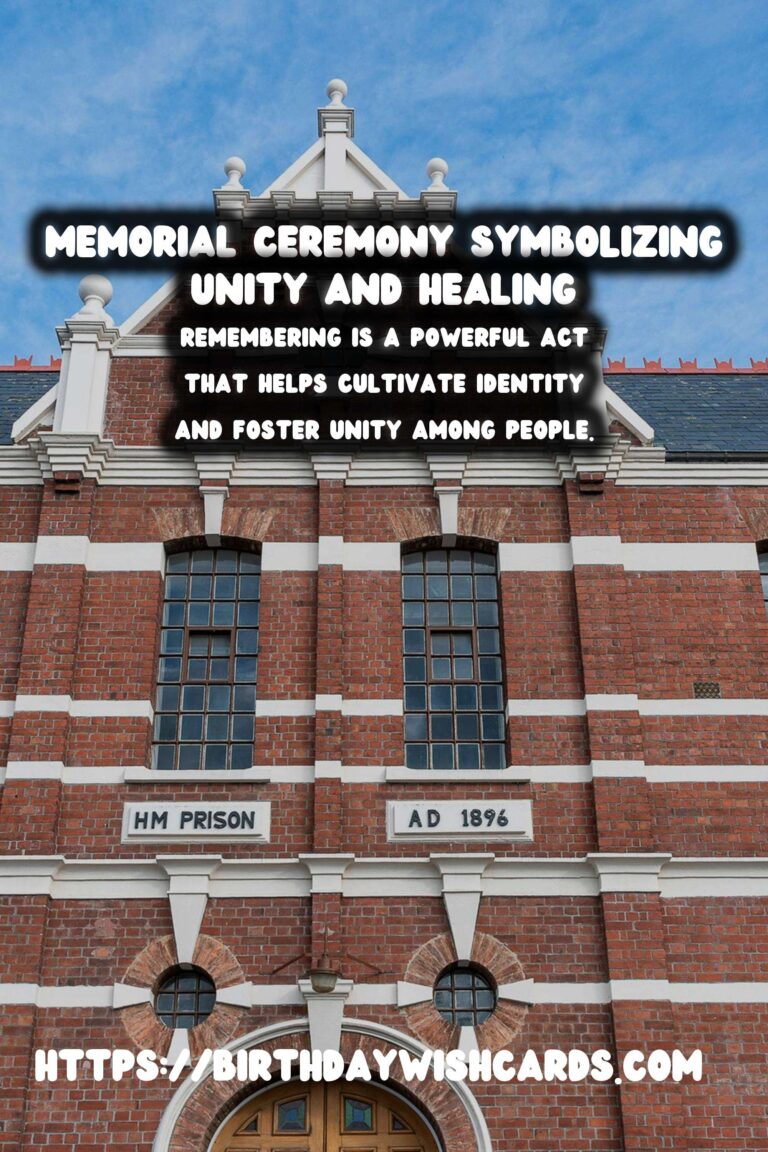
Every nation has its unique history composed of triumphs and tribulations. Understanding this is vital to comprehend the significance of historical commemorations in fostering national healing. These commemorative practices serve to honor the past, educate the present, and inspire the future, playing a critical role in reconciling divided societies and fostering unity among citizens.
At the heart of historical commemorations are ceremonies and events that honor significant past events or personages. These occasions are as diverse as the cultures and histories they represent. From Independence Day celebrations to more solemn memorials honoring those lost in wars, historical commemorations resonate with the collective consciousness of a nation.
The Importance of Remembering
Remembering is a powerful act that helps cultivate identity and foster unity among people. A shared memory of historical events provides a basis for discussion and understanding, contributing to an individual’s sense of belonging and national identity. Through these commemorations, people are reminded of where they came from, which helps to inform where they are going. It is not merely about retelling the past; it’s about forging a sense of collective memory that binds diverse communities.
For countries recovering from conflicts or deep-seated social divisions, historical commemorations offer a platform for reconciliation. They bring communities together, allowing people to collectively mourn, forgive, and look towards future peace and unity. In these contexts, commemorations serve both a healing and educational purpose, providing a chance to correct historical inaccuracies and promote truth and understanding.
Commemorations as a Tool for Healing
Many nations have utilized historical commemorations as a tool for national healing. For instance, South Africa’s Truth and Reconciliation Commission highlighted the power of storytelling and acknowledgment of past injustices as a process of healing from the apartheid era. Such practices do not erase the pain of the past but rather create a dialogue space for collective healing and constructing a future free from past grievances.
Moreover, commemorations invoke the process of ‘active remembering’, where each community member plays an active role in the remembering process. This participation helps to validate the personal and collective pain and struggles, allowing societies to rebuild mutual trust and respect.
Reconciliation Through Historical Commemoration
The role of historical commemorations extends beyond mere remembrance. They are instruments for establishing peace and unity. In Bosnia and Herzegovina, commemorations of the Srebrenica genocide serve as a crucial step in reconciliation by acknowledging the atrocities and publicly grieving the losses, thereby building bridges between ethnic communities.
Reconciliation through commemorations is also a continuous process. As societies evolve, so must their approaches to remembering the past. This requires a dynamic and inclusive strategy that considers various perspectives and ensures all voices are represented.
Educational Value of Commemorations
Beyond their role in healing and reconciliation, historical commemorations are educational tools that teach younger generations about significant past events and their implications. They encourage critical thinking and engagement with history, fostering a greater understanding of current social, political, and cultural contexts.
Through educational programs linked to commemorative events, societies can inspire young people to learn from the past, challenge existing narratives, and contribute positively to their nations’ future.
Conclusion: Embracing the Power of Commemoration
In conclusion, historical commemorations are far more than mere rituals of remembrance. They are a vital part of national dialogue, serving to unite, heal, and educate. As nations continue to reflect on their past, developing inclusive and insightful commemorative practices will be crucial in fostering national unity and healing.
The power of such commemorations lies not only in their ability to bring people together but also in their potential to pave the way for a more informed and harmonious future. As we continue to grapple with historical and contemporary issues, embracing the role of commemorations can provide valuable pathways towards understanding and healing on a national scale.
Remembering is a powerful act that helps cultivate identity and foster unity among people. For countries recovering from conflicts or social divisions, historical commemorations offer a platform for reconciliation. 
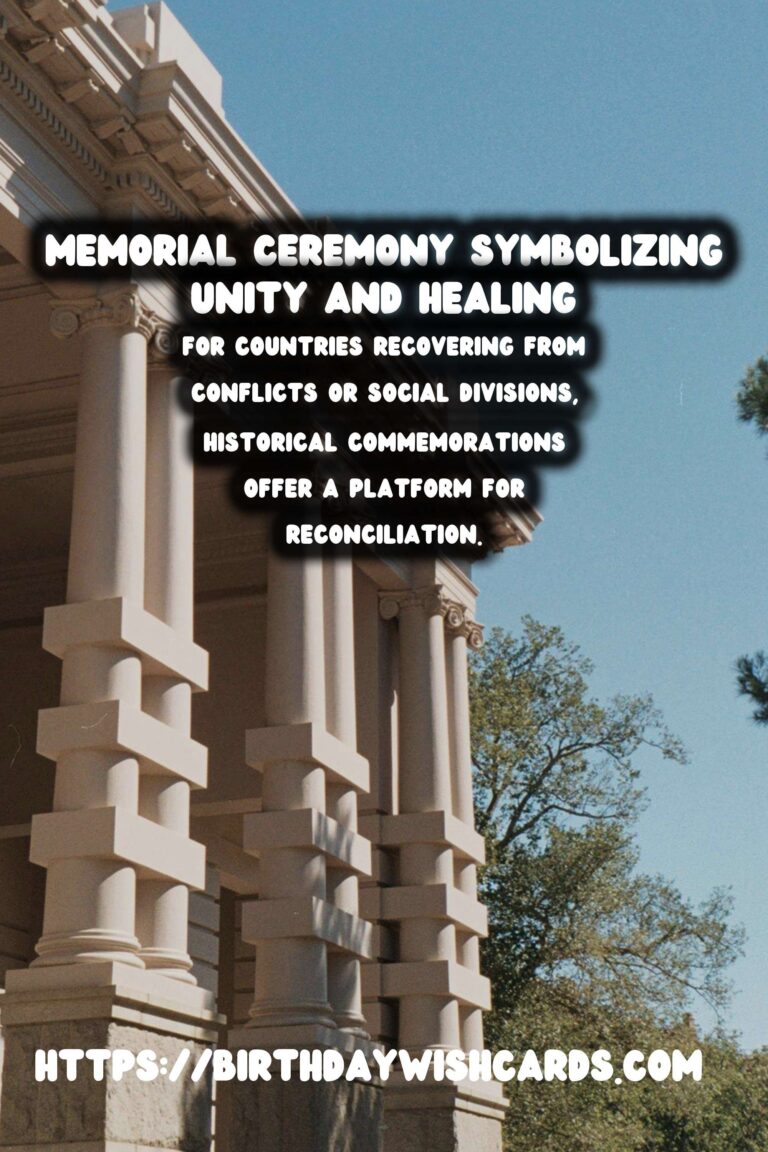
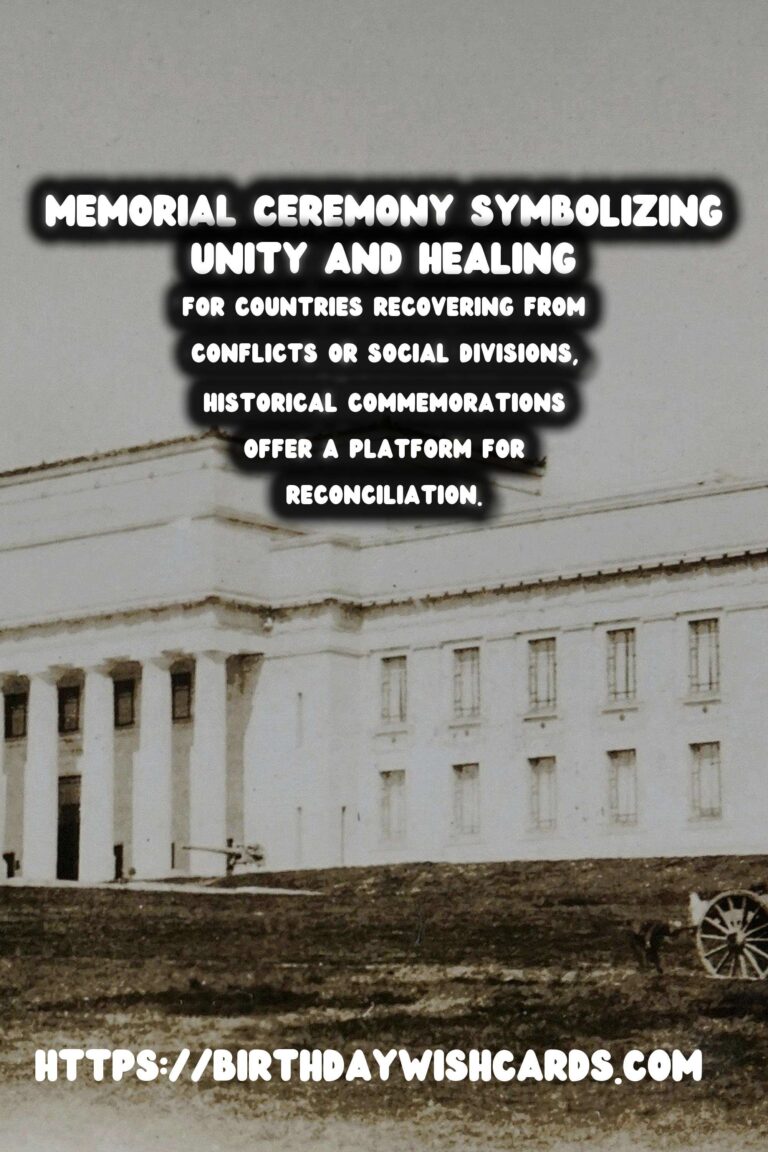
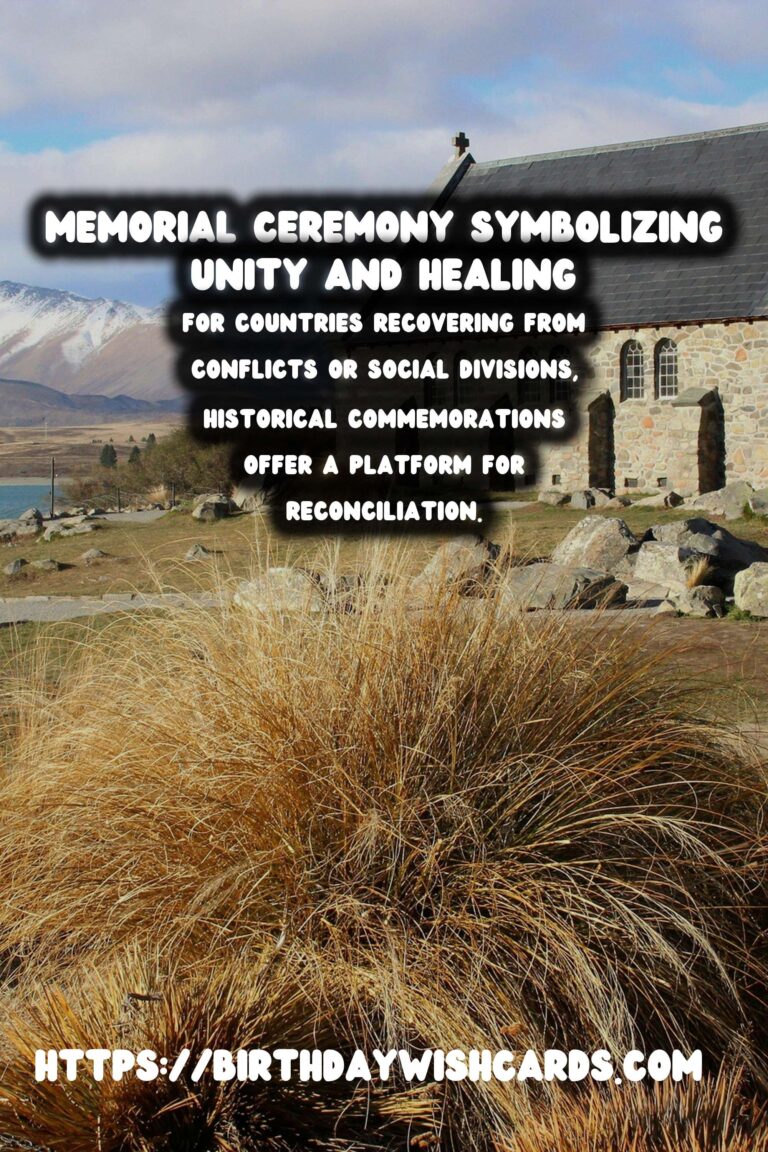
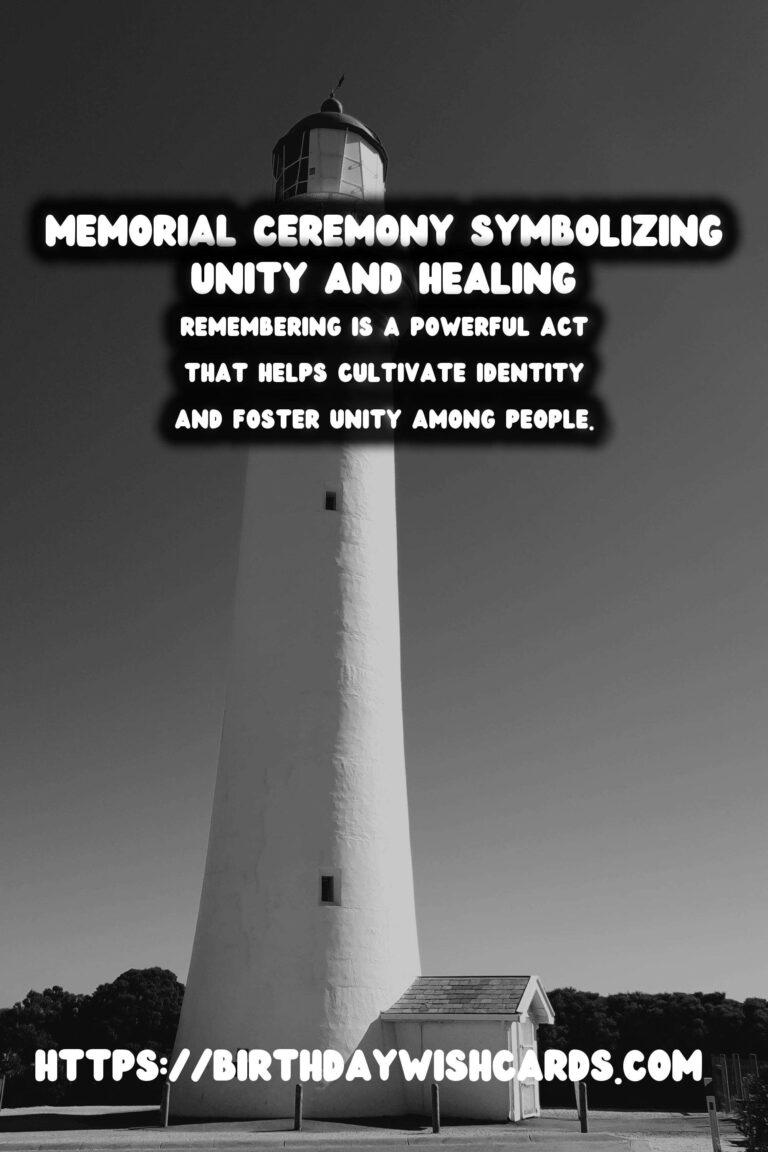
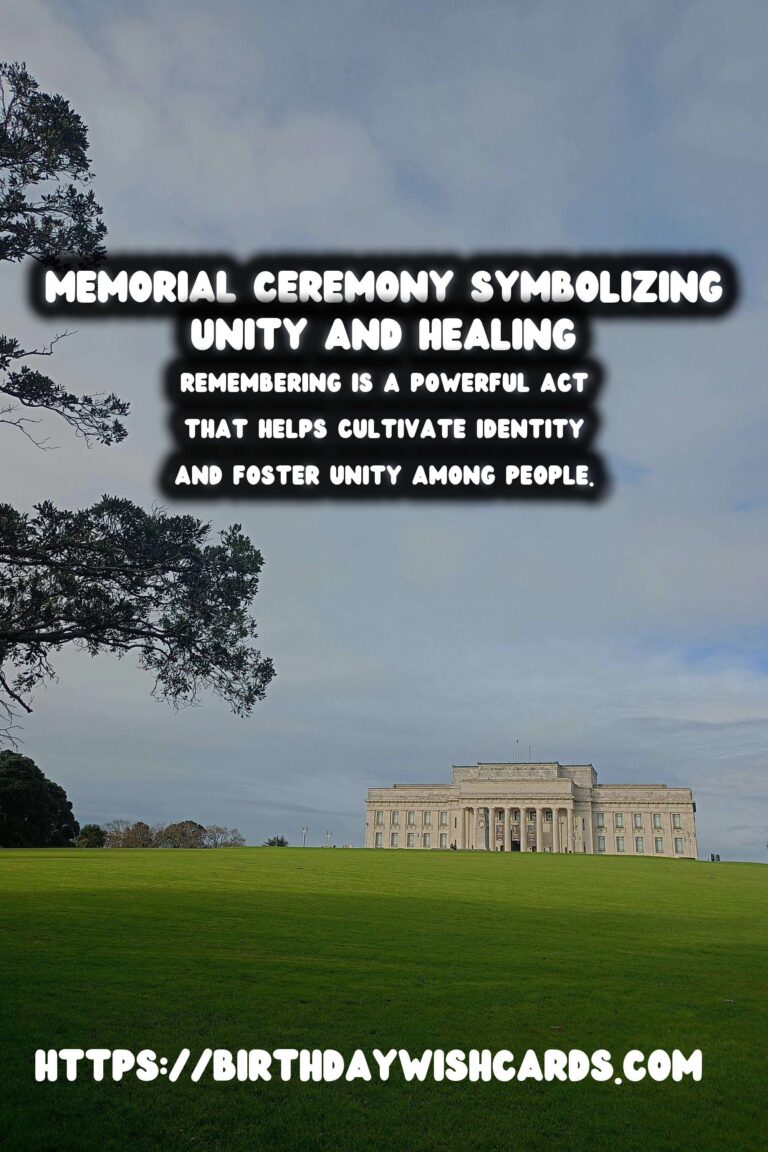
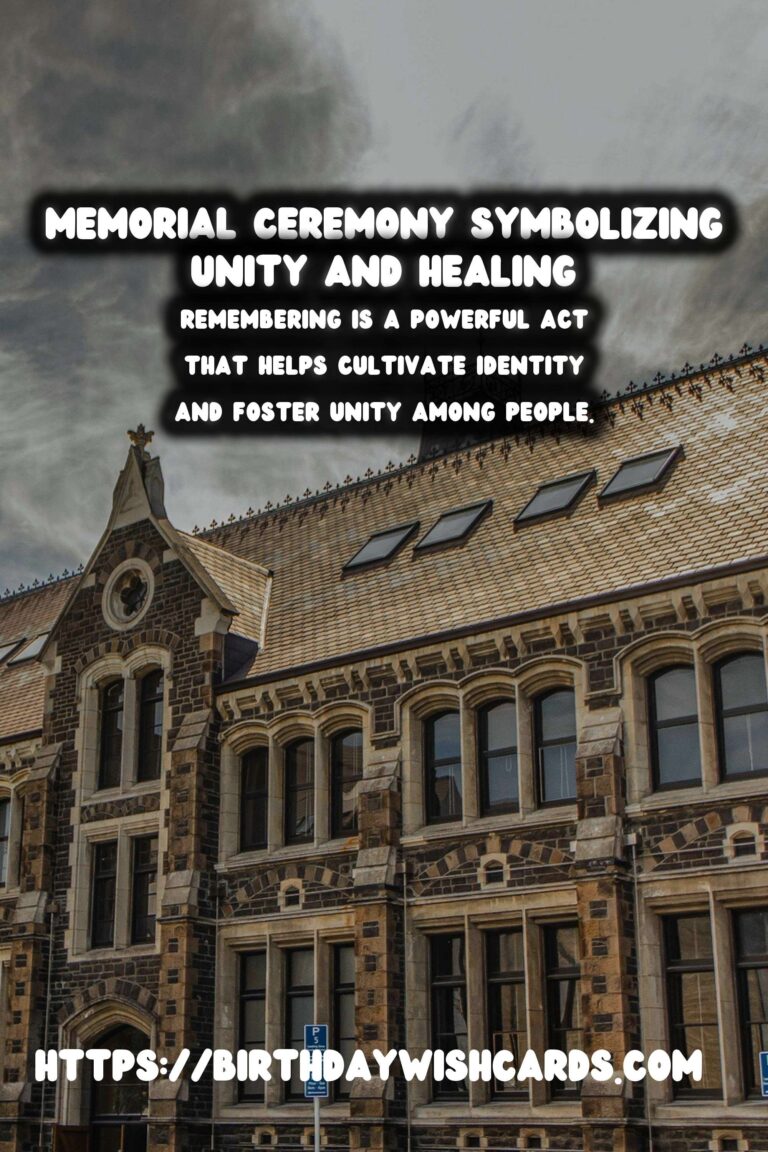
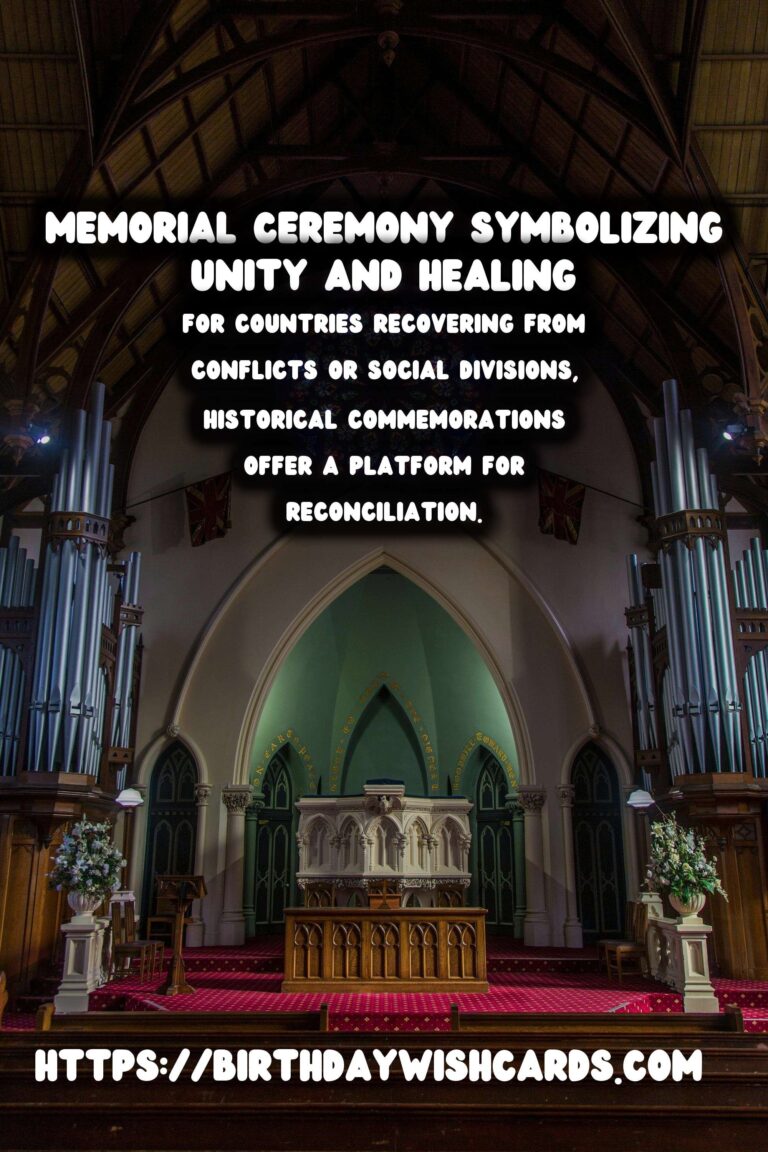
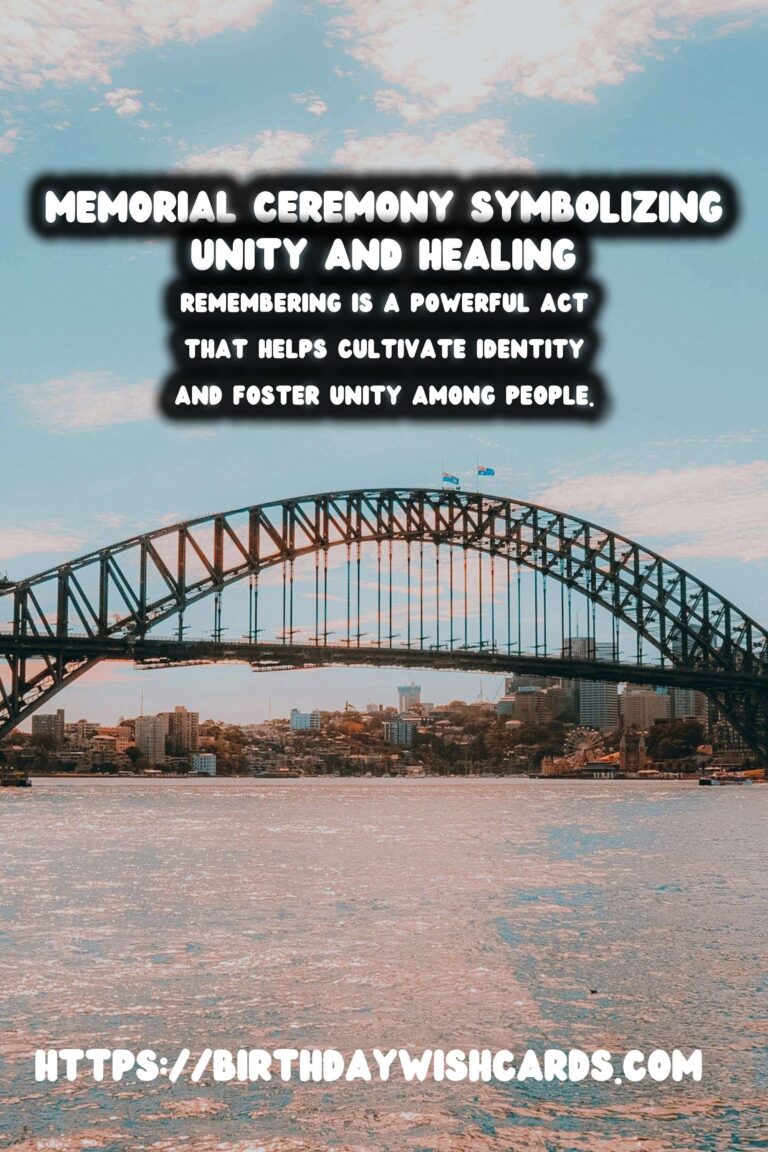
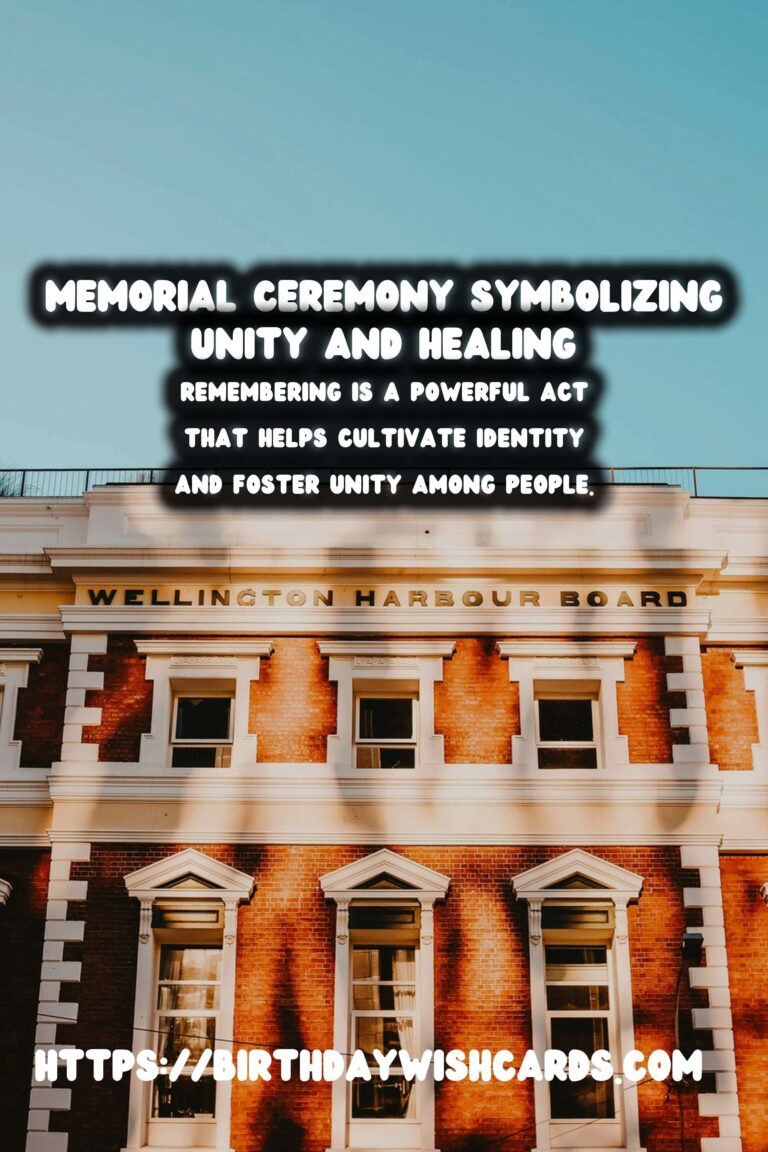
#NationalHealing #HistoricalCommemoration




